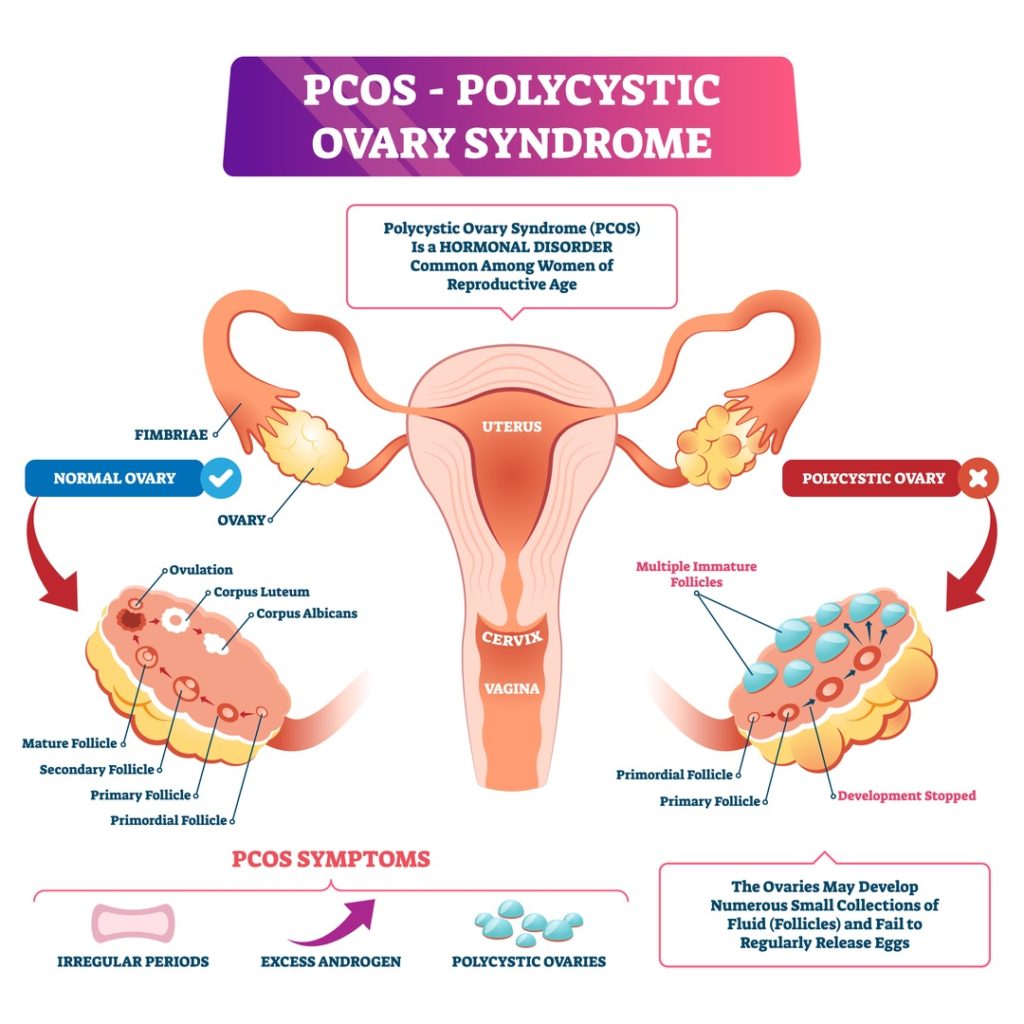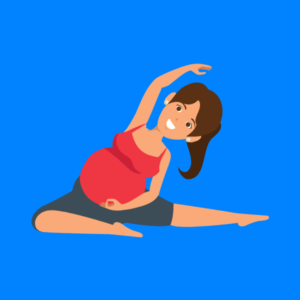It is a common health problem caused by an imbalance of reproductive hormones which creates problems in the ovaries. During a normal healthy cycle, an egg is released each month. However with PCOS, the egg released may not be good enough or develop as it should for fertilisation.
Women with PCOS may have irregular menstrual periods or excess male hormone (androgen) levels. This condition is usually discovered among women in their 20s and 30s, when they have problems getting pregnant or have irregular periods.
Symptoms of PCOS
- Irregular periods. Women with PCOS may miss periods or have fewer periods (fewer than eight in a year), or stop having periods.
- Women with PCOS may have excess androgen, excess male hormone which causes too much hair on the face, chin, or parts of the body (hirsutism)
- Acne on the face, chest, and upper back
- Hair loss
- Weight gain or difficulty losing weight
- Darkening of skin, particularly along neck creases, in the groin, and underneath breasts
- Difficulty getting pregnant
What causes PCOS?
Factors that might play a role include:
- Excess insulin: Insulin is the hormone produced in the pancreas that allows cells to use sugar, your body’s primary energy supply. Insulin resistance is when the body’s cells do not respond normally to insulin. Many women with PCOS have insulin resistance, especially those who have overweight or obesity, have unhealthy eating habits, do not get enough physical activity, and have a family history of diabetes (usually type 2 diabetes). Over time, insulin resistance can lead to type 2 diabetes.
- Low-grade inflammation. Experts believe that women with PCOS have a type of low-grade inflammation that stimulates polycystic ovaries to produce androgens, which can lead to heart and blood vessel problems.
- Genetic reasons.
- Excess androgen. The ovaries produce abnormally high levels of androgen, resulting in hirsutism and acne.
How is it treated?
There is no cure for PCOS, but the condition can be managed.
You and your doctor will work on a treatment plan based on your symptoms, your plans for having children, and your risk of long-term health problems such as diabetes and heart disease.
Many women will need a combination of treatments, including:
⦁ Lifestyle changes: Your doctor may recommend weight loss through a low-calorie diet combined with moderate exercise activities. Low-fat, high-carbohydrate diets might increase insulin levels
⦁ Medications: Hormonal birth control pills that contain estrogen and progestin can regulate estrogen and decrease androgen to regulate your periods.
⦁ Clomid, Letrozole, Metformin can help ovulate
⦁ Some birth control pills to reduce excessive hair growth.
⦁ Surgery as a last resort, if other options don’t work and you want to get pregnant, a simple surgical procedure called laparoscopic ovarian drilling (LOD) may be recommended. Surgery usually restores ovulation, but only for 6 to 8 months.
PCOS can cause problems during pregnancy for you and for your baby. Women with PCOS have higher rates of miscarriage, Gestational Diabetes, Preeclampsia, C- section. To reduce these risks, aim to lose weight and reach healthy blood sugar levels before getting pregnant.



